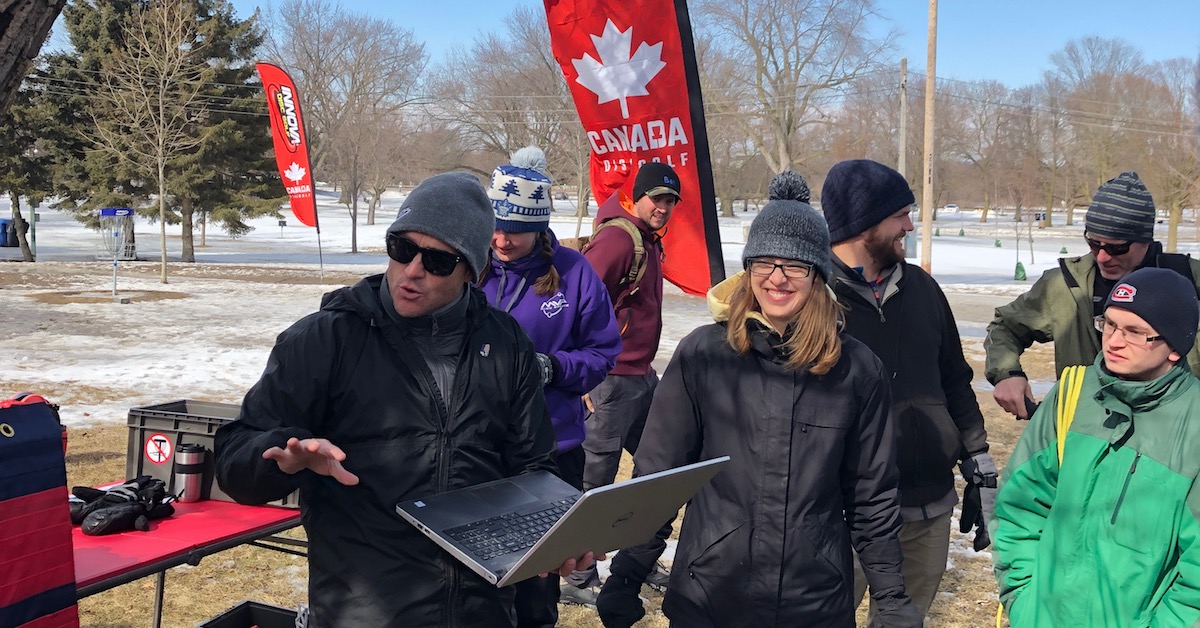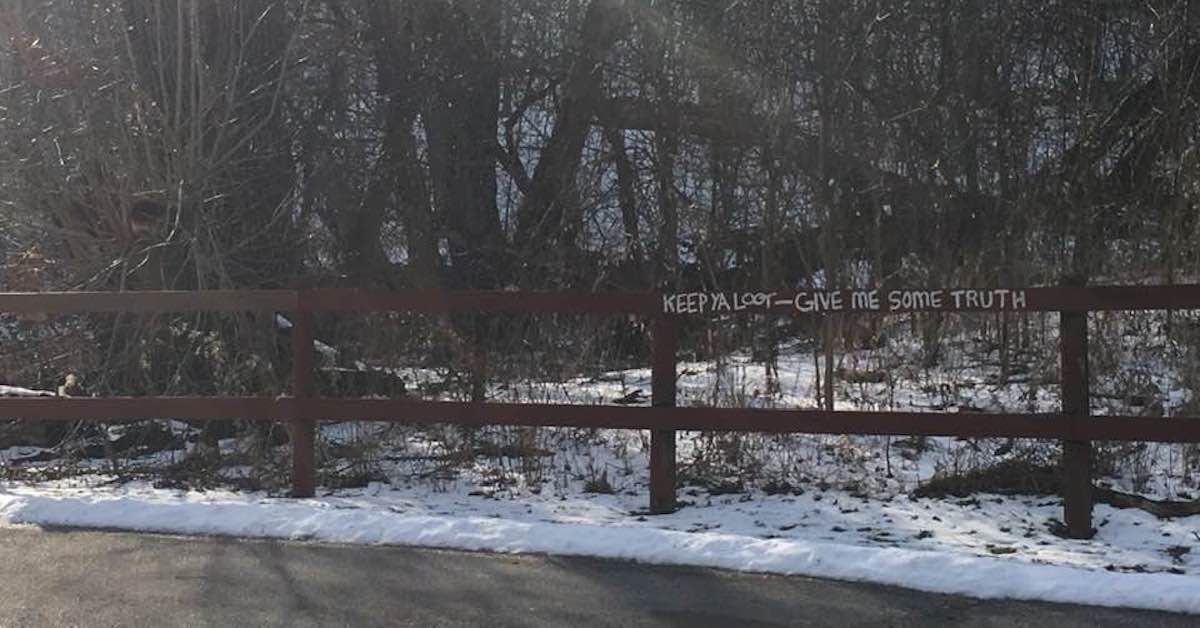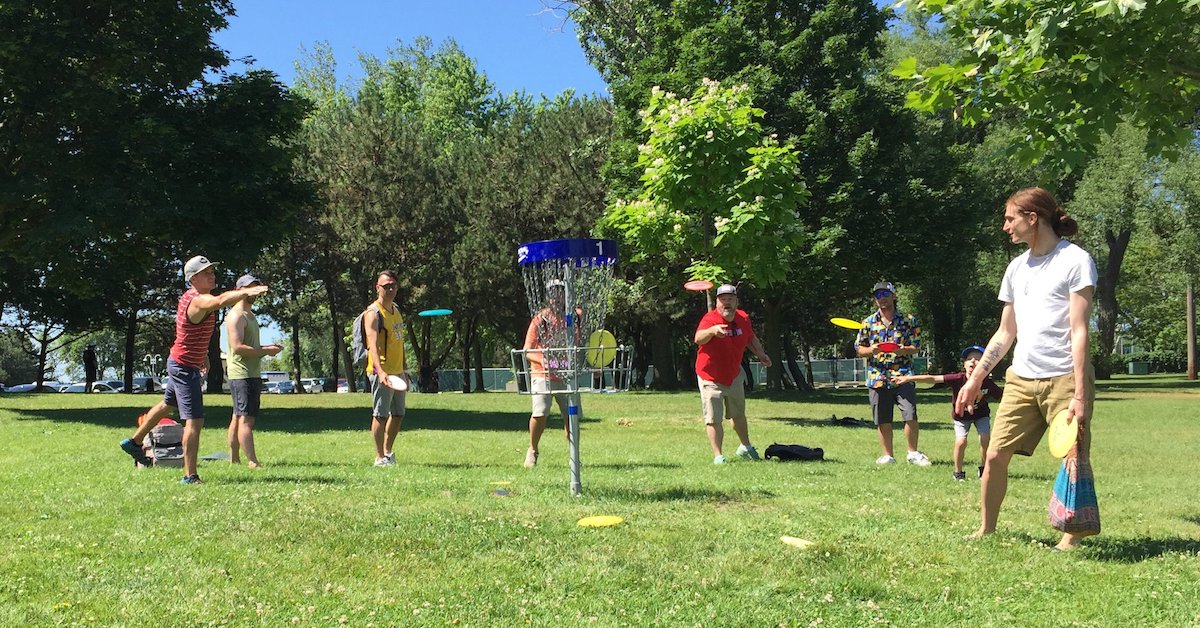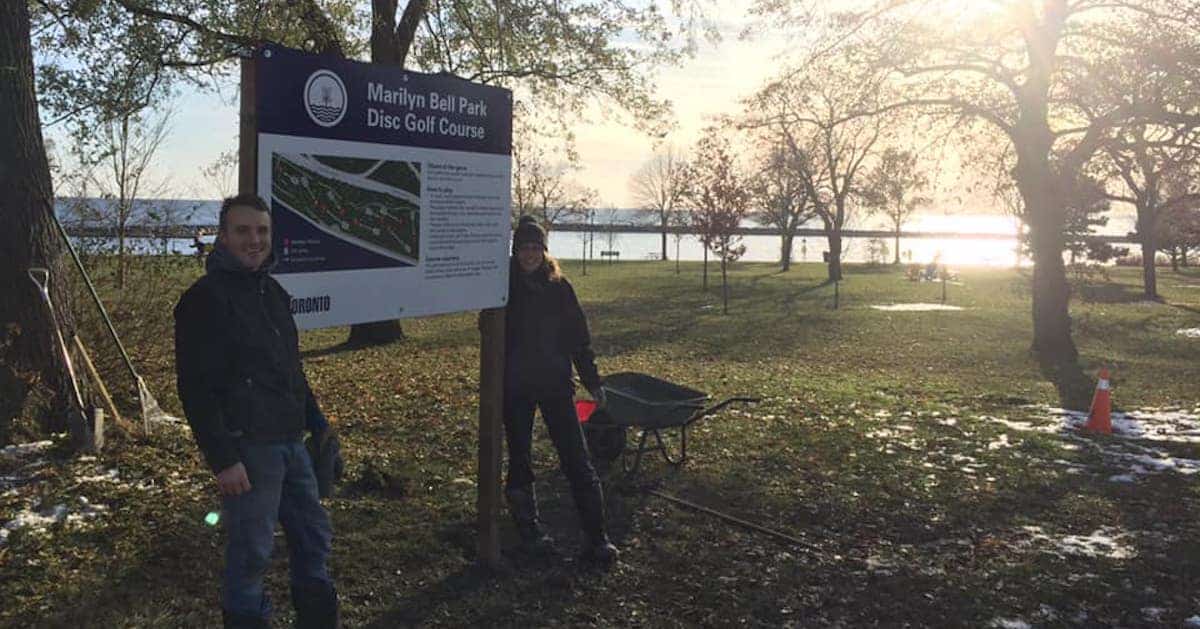Goodbye Corporate Canada. Hello Disc Golf!

One day in 2014, Jeff MacKeigan was out on the trails with his mountain bike in Toronto, Canada, when he happened upon something unfamiliar.
“I was riding with my friend in the Don Valley, and I thought, ‘What is that silly looking thing?’” MacKeigan said.
Amusingly, the alien object they’d encountered happened to be part of something with E.T. in its name—a basket from the E.T. Seton Disc Golf Course. And, as silly as he found it at the time, seeing that basket was the start of an epic journey for MacKeigan. It’s one that’s taken him from a high-level position at an international company to cofounding Tilt Bridge, a business that, in part, has the mission to create disc golf communities throughout the Toronto area, Canada, and the world.
Additionally, while Tilt Bridge’s story and goals are fascinating, so are the lessons MacKeigan and business partner Cara Hovius have learned about how to gain the support of local authorities for disc golf courses and events. We discussed all of the above with MacKeigan, uncovering both a unique narrative and ideas that could help anyone interested in catalyzing the growth of disc golf in their area.
Leaving Corporate, Going Disc Golf

When the winter set in and mountain biking wasn’t possible, MacKeigan and his friend decided to go back to the course they’d seen and give the game a try. The conversion was a quick one.
“Next thing you know, a month or two later my friend and I were talking and joking, ‘I guess we aren’t mountain bikers anymore; we’re disc golfers now,’” MacKeigan said.
It wasn’t just the sport that MacKeigan fell in love with. He said that the disc golfers he met were so “kind and generous” that he began to value the fellowship and society disc golf inspired as much as playing it. This led him to begin spending much of his free time considering how he could create more chances for people to form disc golf communities throughout Toronto.
“I live in a community called The Beaches, and it’s a real community-oriented neighborhood that I thought would be a perfect fit for a new course,” MacKeigan said.
It took a long time to convince others how perfect that fit was. MacKeigan said it took three years of trying before he finally got permission to install a course. He paid for it out of his own pocket and put it in with the help of 12 volunteers, one of whom was his future business partner, Hovius.

Once the course was ready for play, it started winning people over. MacKeigan and Hovius promoted the course heavily on social media and often spent time at the park introducing people to the sport firsthand.
“All of a sudden, we started building a similar community to what was at Seton out at Beaches,” MacKeigan said. “The city started looking at the Beaches as kind of like a pilot project. And six months in, there was lots of positive feedback. One year in, there was lots more positive feedback. At that point, people started to reach out to us asking how they could make their dream of a disc golf course into reality.”
The more MacKeigan was approached with these requests and the deeper he became infatuated with the community spirit disc golf could inspire, the more convinced he became that his passion should become a part of his profession. He made the difficult decision to resign as Canada’s National Account Manager for Smucker’s, a company well-known for its jams and jellies.
“I’d won employee of the year the year before and spent a week with the Smucker family in Arizona,” MacKeigan said. “I ended up going out to dinner with the president of Smucker’s and all I’m doing is talking to him about disc golf…About a year later I shared with him that I needed to go and do something different. He said, ‘I wish you all the best, and keep me posted on how it goes.’”
Thereafter, MacKeigan and Hovius started up the company Tilt Bridge. The company, founded in 2019, has two sides to it, one that focuses on building disc golf communities and another that focuses on teaching psychometrics to companies. Examples of psychometrics MacKeigan gave included improving self-awareness and emotional intelligence inside a company while also teaching a company strategies for working with its business partners.
Along with installing another course in Toronto (Marilyn Bell Park), MacKeigan and Hovius have started working on a number of projects to help people throughout Canada and the world build their own disc golf societies.
“We’ve been really lucky to have various people reach out to us over the last few months,” MacKeigan said. “We’re helping them by working with municipalities. I’m working with private landowners interested in putting courses in their backyards, people in three countries in Central America, and private companies.”
They also have the goal of installing one new course a year in the Toronto area through 2022, using the logic that the fourth-largest city in North America that receives millions of visitors a year is ready-made to help grow the sport. The courses they aim to build will be 9-hole, urban, and geared toward beginners, with the focus being on providing an experience people who’ve never thrown a disc before can enjoy and will want to have again.
Lessons Learned

While installing The Beaches and Marilyn Bell, MacKeigan and Hovius have learned a lot about how to gain the support of local authorities for disc golf. A large part of what the disc golf side of Tilt Bridge does is help others with the ins-and-outs of that process. During the course of our conversation, MacKeigan shared various pieces of advice on the topic, and three of them stood out as extremely valuable for anyone hoping to build a new disc golf community:
1. Passion has to grow in non-disc golfers.
MacKeigan said one of the biggest breakthroughs for him during the negotiation process for The Beaches was coming to understand that just because he had immediately fallen for disc golf didn’t mean others would feel the same.
“I just assumed people would respond to, ‘This is a really good thing; we should do this,'” MacKeigan said. “But people were busy or there were no responses.”
He soon realized the importance of coming up with detailed plans and reasoning to get the attention of those with the power to help.
2. Learn the mandates of those you talk to and focus on them in your proposal.
One of the best ways to create passion—or at least interest—for a disc golf project from local authorities is to show them how supporting and promoting disc golf can help them meet goals that are important to them.
MacKeigan gave an example from a proposal meeting he went to in a smaller Canadian town that was primarily concerned with creating new revenue streams. The proposal focused on how building a disc golf community could eventually lead to tournaments that would bring in many non-residents to spend money in local restaurants, hotels, and on other services. The proposal appeared to interest the town greatly.
If that proposal had, for instance, focused on how disc golf is relatively low in environmental impact, it would have failed to have the same effect.
The simple way to find out these mandates? Just ask.
3. “Build it and they will come” is not often successful.
It’s not enough just to have the end-goal of putting in a course. If a course is going to be successful, it’s important that there are efforts to create a community around it. This is especially true in areas where disc golf is virtually unknown.
In current times, part of creating communities inevitably includes social media, but organizing events is also key. Once there’s a community of disc golfers gained through social media, events, etc., doing positive things for the community like trash pick-up days can create positive attitudes toward disc golfers and the sport, hopefully getting more people interested in trying it out.
A Bridge to Somewhere
MacKeigan and Hovius focusing professional time on disc golf is still new for both of them, but they hope they can spur growth of the sport for many years to come.
“One of my goals is that people feel comfortable reaching out to Cara and me,” MacKeigan said. “Let’s get the meeting going and we’ll show this community how disc golf will benefit it.”
They also hope to help with the organization of more events and are planning their biggest one ever right now, the Toronto Open. Previously scheduled for spring of this year, it has been moved to 2021 due to the COVID-19 pandemic. You can find out more about the event on Facebook.

